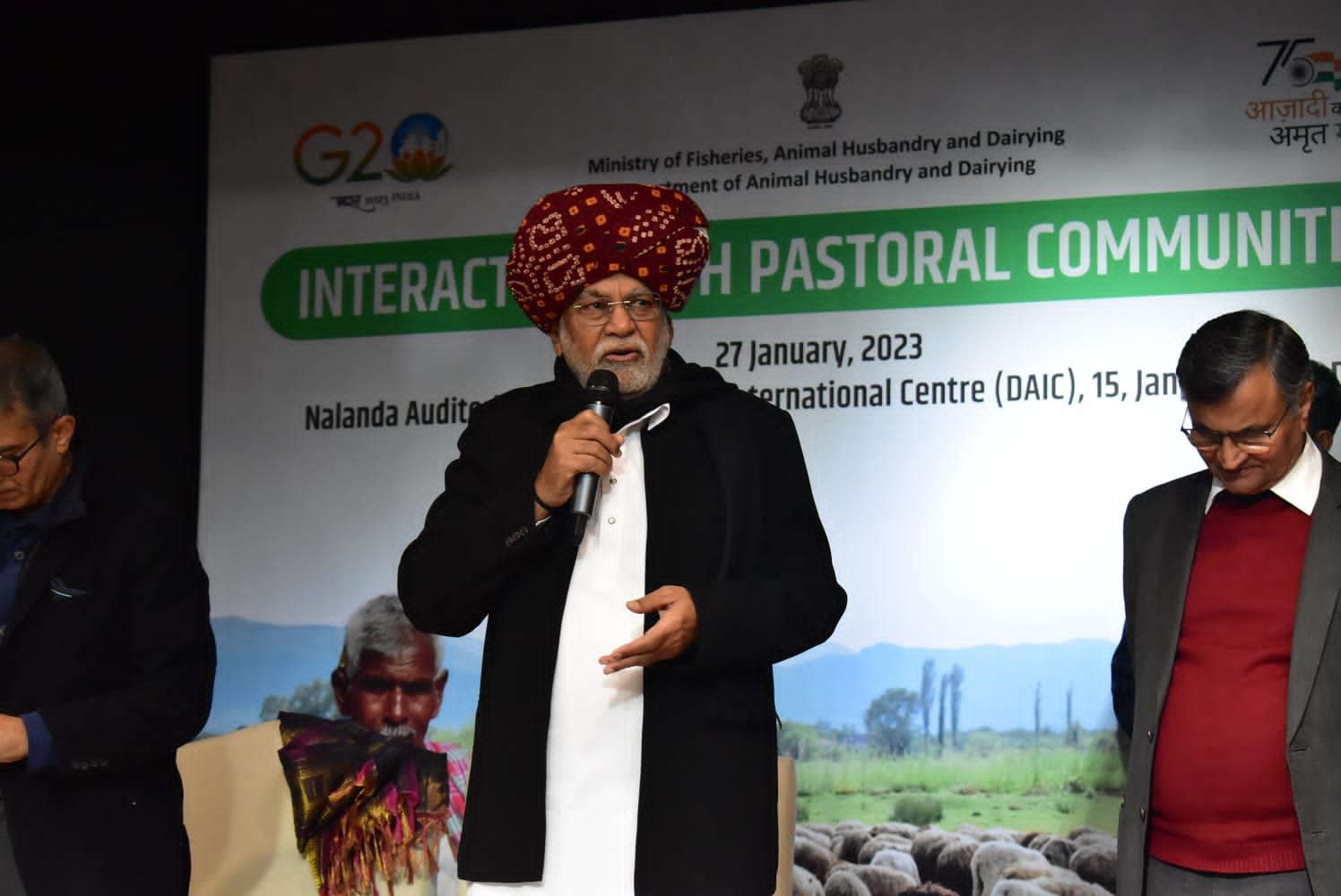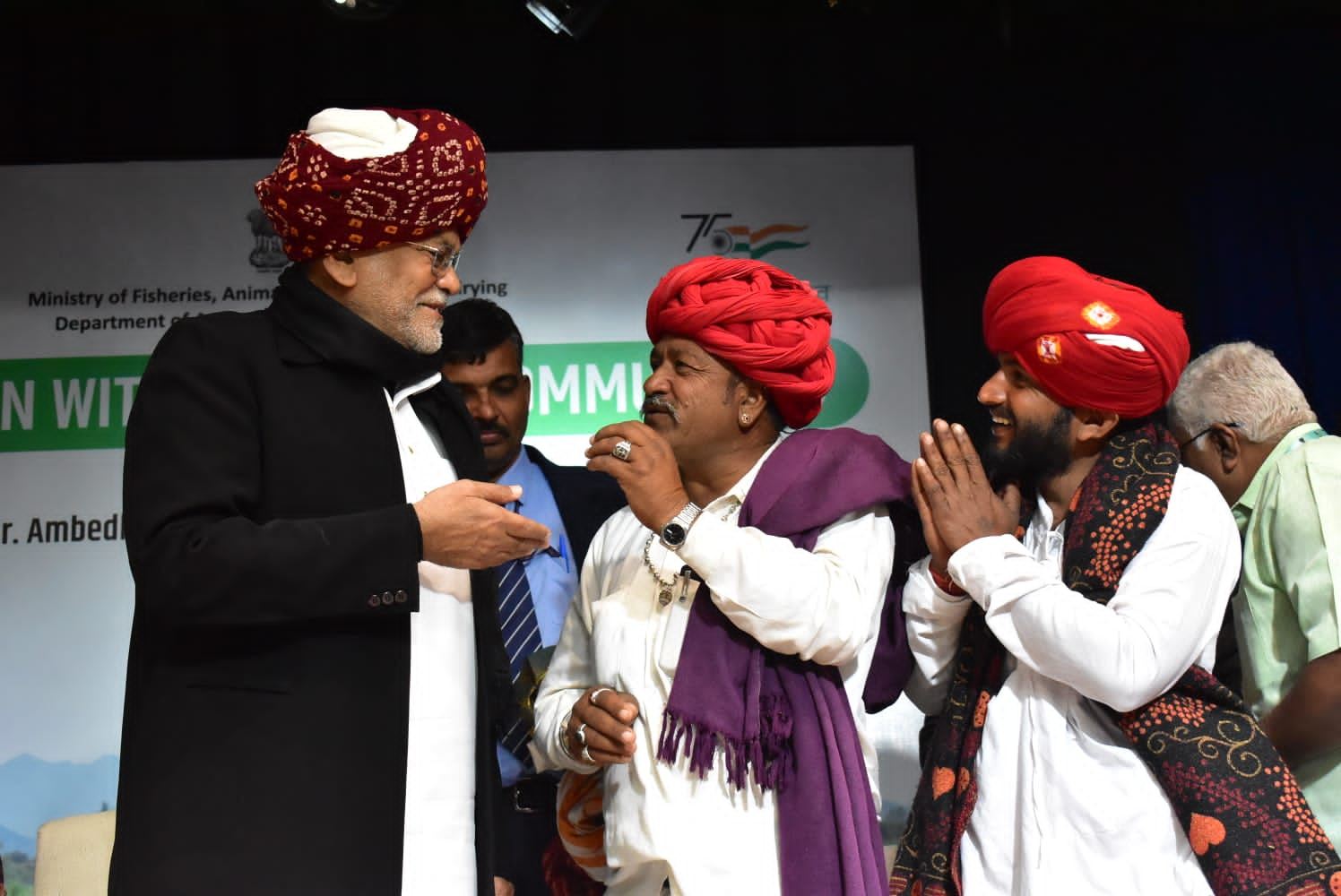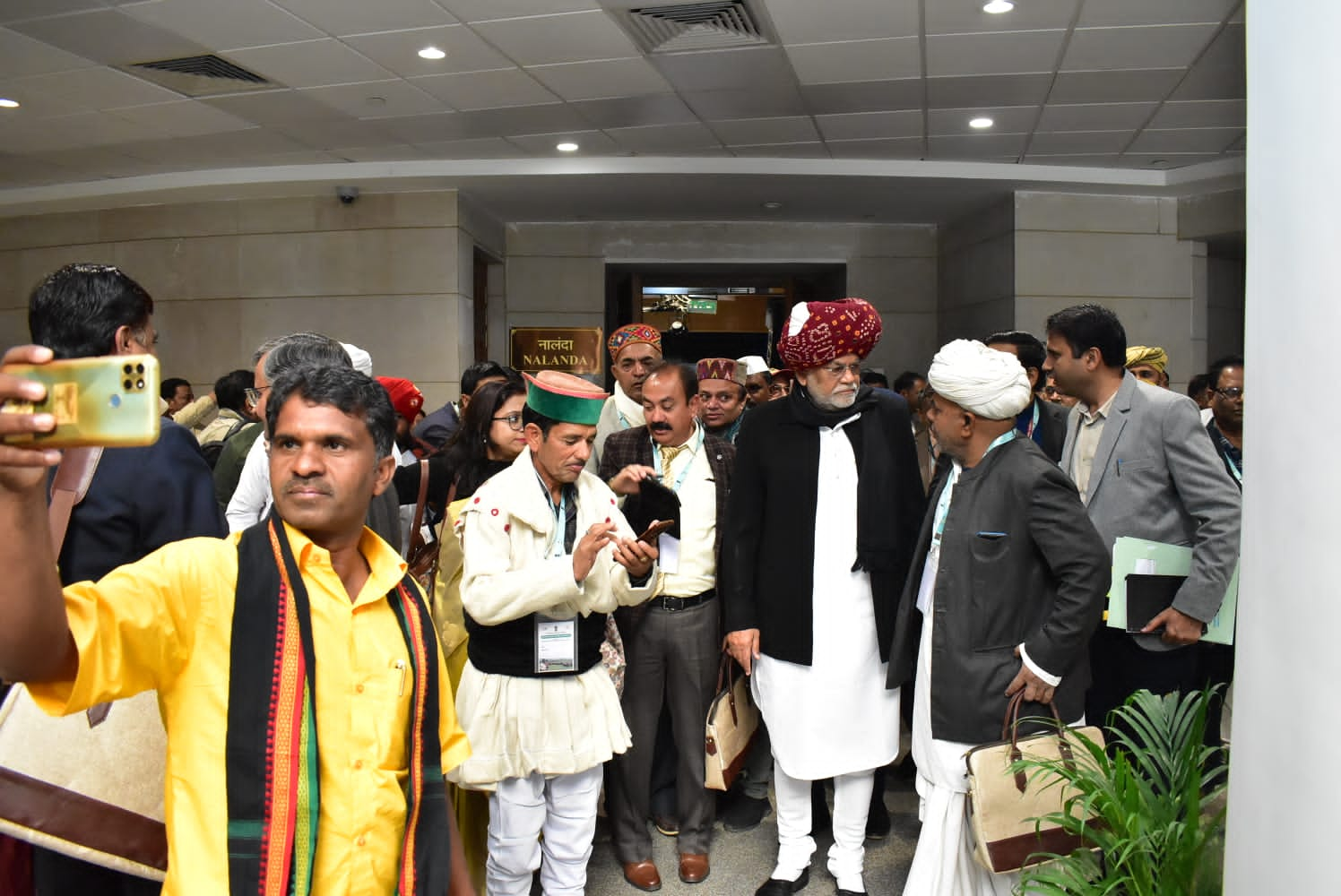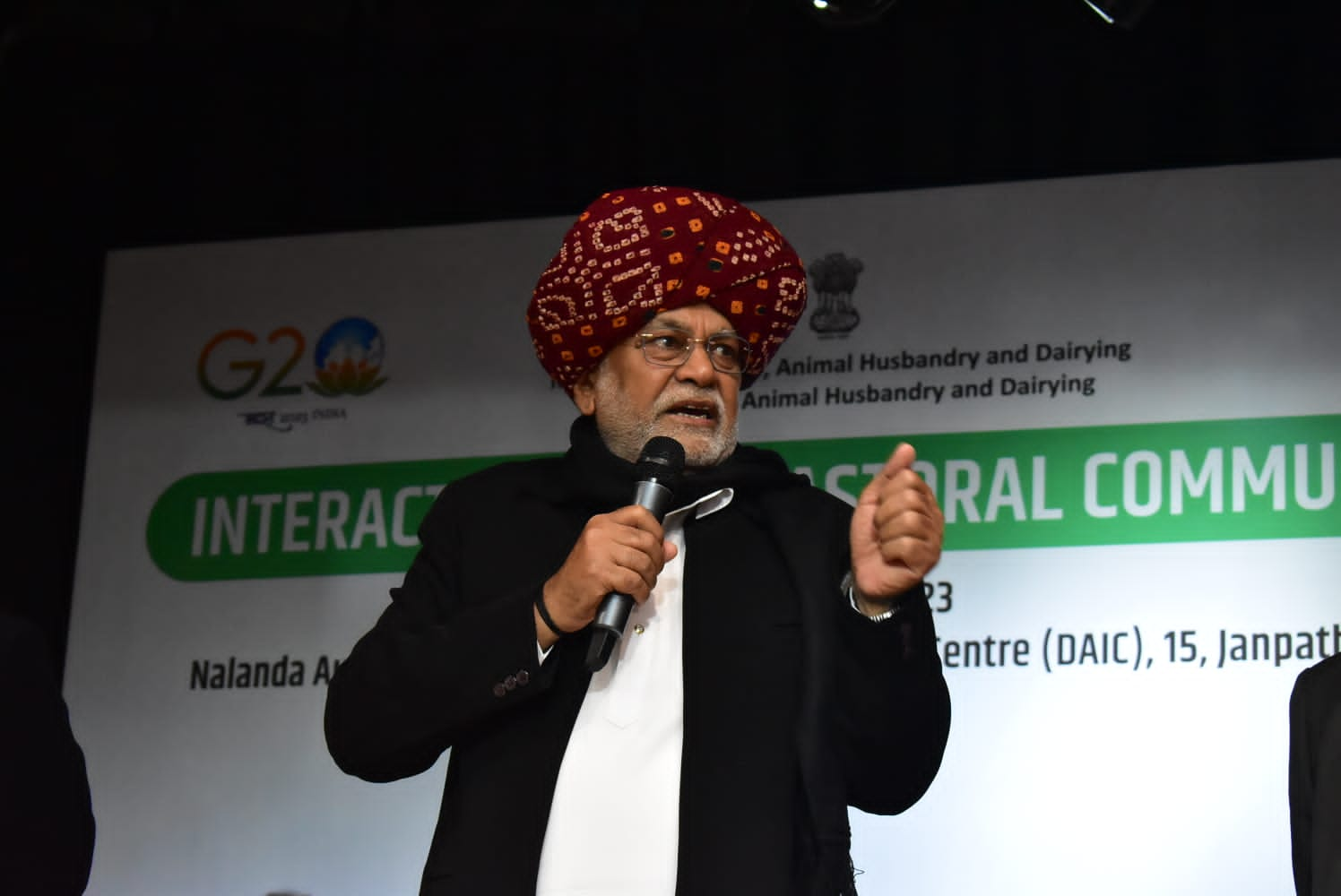Ministry of Fisheries, Animal Husbandry & Dairying
Shri Parshottam Rupala interacts with different pastoral communities from across the country today
Posted On:
27 JAN 2023 5:52PM by PIB Delhi
- The Minister highlighted that the Department has recently formed a ‘ Pastoral cell’ to prioritise the enabling policies for the community, encouraged women participation in future interactions, focused on how youth can be motivated
- The main concerns expressed by pastoral communities during the interaction ranged from gradual loss of pasture lands, official recognition of pastoralists to documentation of traditional knowledge and ethno veterinary practices followed by the community
|
Shri Parshottam Rupala, Union Minister, Fisheries Animal Husbandry and Dairying along with officials from the Ministry interacted with different pastoral communities from across the country today at Dr. Ambedkar International Centre (DAIC) , New Delhi.


The main concerns expressed by pastoral communities during the interaction ranged from gradual loss of pasture lands, official recognition of pastoralists to documentation of traditional knowledge and ethno veterinary practices followed by the community.


The Minister highlighted that the department has recently formed a ‘Pastoral cell’ to prioritize the enabling policies for the community, encouraged women participation in future interactions, focused on how youth can be motivated. He applauded the pastoral communities for conserving their traditions and cultural practices as of date.
A note on the different schemes of Department of Animal Husbandry and Dairying, Govt. of India under which assistance can be provided to pastoralists is circulated to all State Animal Husbandry Departments.
The Ministry of Fisheries, Animal Husbandry & Dairying has extended the facilities of ‘Kisan Credit Cards’ to pastoral communities
The Ministry has recently formed a ‘Pastoral cell’ to prioritize the enabling policies.
The Ministry has also decided to include details of pastoral communities in upcoming 21st Livestock Census, scheduled in 2024.
The Union Minister, FAHD along with officials from Ministry attended a ‘Pastoral Convention’ in Bhuj, Gujarat in January, 2023. The main concerns expressed by pastoral communities during the convention and specifically during the ‘Pastoralist Youth Conclave’ are as follows:
i. Regeneration of degrading pastures lands, pasture development and increase availability of water in pastures
ii. Implementation of Forest Rights Act (FRA) at ground level .Ensuring Access to Adequate Grazing Spaces in Forests, Grasslands and Village Common lands
iii. Social recognition for pastoralists; official recognition and identity
iv. Establishing structured marketing facilities for produces (milk, meat and wool) ensuring proper value of the produce reach the actual pastoral communities. Facilitation of transport of perishable produces (milk) to market on a timely basis. Formation of cooperatives to facilitate marketing
v. Conservation of livestock breeds
vi. Documentation of traditional knowledge and ethno veterinary practices followed by pastoral communities
vii. Establishing mobile schools for pastoralists
viii. Ensuring last mile service delivery at high land and low land pastures along the migratory route
Background:
Pastoralism is a form of animal husbandry where livestock are reared by grazing in pastures, historically by nomadic people who moved around with their herds. The species involved include sheep, goat, camels, cattle, buffalo, yaks and donkey.
Nomadic pastoralism is practiced by Members of caste or ethnic groups with a strong traditional association with rearing livestock by moving with the animals from place to place in search of pasture. Nomadic pastoralism is practised across the country ranging from mountains to drylands -it manifests locally in various local socio-cultural practices. Horizontal pastoralism exists in dry and arid parts while vertical pastoralism is found in the Himalayan States.
Large number of traditional migratory routes exists across the country-Intra-and Inter-State in search of fodder and water. Pastoralists generally follow the same migratory routes with some deviations occasionally. Horizontal routes are undertaken in dry, arid and semi-arid plains (Rajasthan, Gujarat, Karnataka, Orissa, Andhra Pradesh etc.) Vertical routes are followed in the Himalayan States (Himachal Pradesh, Uttarakhand, U.P, Sikkim, J&K, and Arunachal Pradesh). However not all migratory routes are documented as yet.
Importance of migratory pastoralism is as follows:
i. The nomadic herders are natural breeders producing very hardy animals that can survive the harsh conditions.
ii. Climate resilient: This climatic and resource-based adaptation requires no external inputs: most cost effective and economical. Wealth is generated on the move.
iii. The milk, meat & wool produced by pastoral herds are organic in nature.
iv. The practice makes soil fertile
v. Livestock grazing the grasses and browsing the bush is vital for ecosystem health and productivity (IUCN report), conserves biodiversity, holds back the desert, stored carbon, and prevent erosion. It helps in forest regeneration.
vi. Their mobility prevents overgrazing, allowing natural vegetation to grow back –an important best practice for managing degraded lands.
vii. Pastoralists are input independent: hence even during scarcity of rains do not face pressures of un-repayable borrowings as often seen for agriculturists. Hence this practice is more climate resilient than other forms of animal husbandry.
***
SS/IG
(Release ID: 1894158)
Visitor Counter : 2480